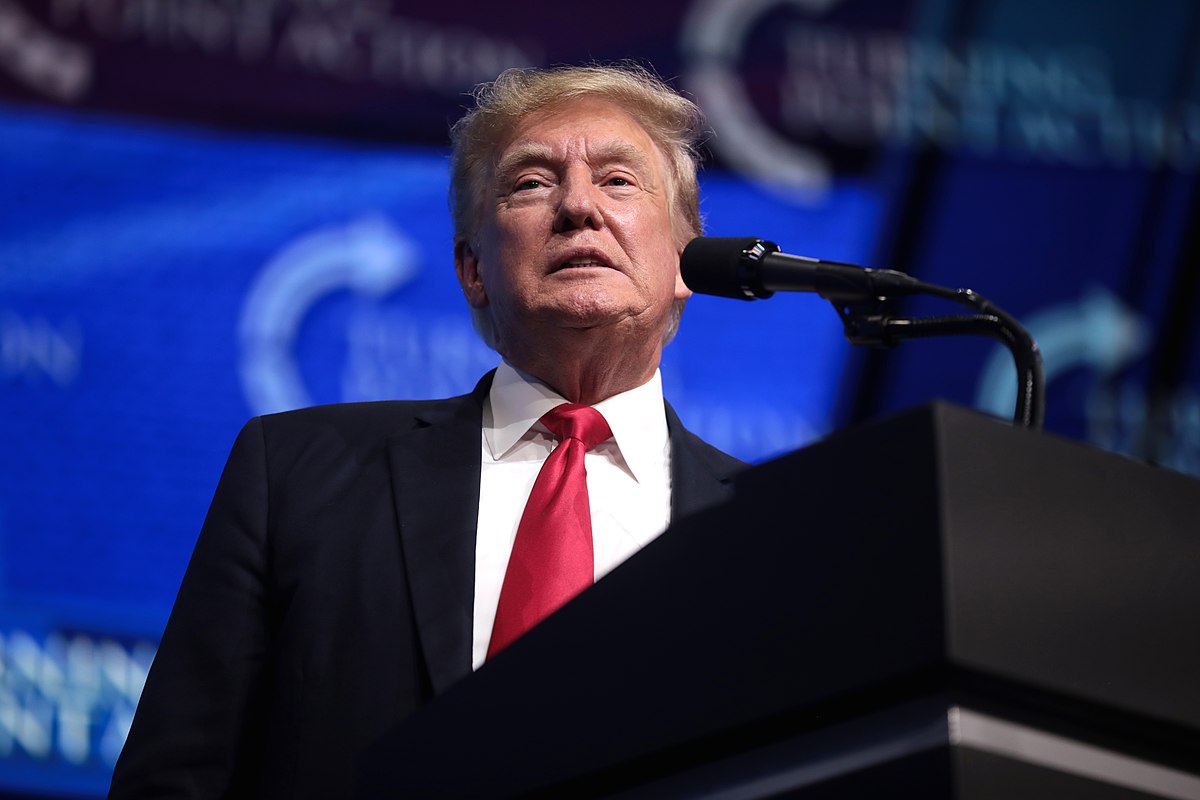- 14 3402-5578
- Rua Hygino Muzy Filho, 737, MARÍLIA - SP
- contato@latinoobservatory.org
 Gage Skidmore/The Star News Network - Gage Skidmore from Surprise, AZ, United States of America
Gage Skidmore/The Star News Network - Gage Skidmore from Surprise, AZ, United States of America
The first 100 days of Donald Trump's second term in office were deeply marked by an aggressive immigration agenda, which transformed both the policy and practice of immigration control in the country. Soon after taking office, Trump signed a series of executive orders that not only sought to curb irregular immigration, but also affected legal flows. Among the actions announced were controversial measures, such as plans to end citizenship by birth and send migrants to a prison in El Salvador, which eventually faced legal resistance but nonetheless significantly altered the immigration system.
The figures released by the government are impressive: about 139,000 people were deported in those first 100 days, while illegal crossings at the southwest border plummeted. In March, only 7,181 migrant encounters were recorded at the border, a significant drop from more than 137,000 in the same month a year earlier. Trump, excited by the results, declared that he intends to surpass the marks of previous administrations, such as that of Joe Biden, who deported 1.5 million people in his first term.
The repressive apparatus was also expanded. The government said it detained 158,000 undocumented migrants in that initial period, including more than 2,200 alleged members of violent gangs such as Venezuela's Tren de Aragua and Central America's MS-13 and Barrio 18. ICE, the main arm of immigration enforcement, played a key role, arresting and prosecuting about 66,000 people, three-quarters of whom had criminal records, including 1,300 for sex crimes and nearly 500 for murder.
Despite these robust figures, the government's actions have provoked severe criticism. Jurists and human rights organizations pointed to violations of due process and disrespect for judicial decisions. An emblematic case occurred when the Supreme Court ordered the government to facilitate the return of Kilmar Abrego Garcia, a Salvadoran citizen illegally deported despite having a court order to remain in the U.S. due to the risk of persecution. So far, both Trump and the government of El Salvador have ignored the decision.
Trump does not hide his frustration with judicial limitations. Recently, he criticized the courts for what he said hindered the progress of deportations, claiming that the long legal processes make the country a dangerous place. For the coming months, the White House has vowed to further intensify the crackdown: detained migrants are expected to be sent to the Fort Bliss military base in Texas, and swathes of land in the southwest of the country are being handed over to military control, turning unauthorized crossings into federal crimes.
Despite the grandiose rhetoric, the numbers so far put Trump behind previous presidents in absolute terms of deportations. During his first term, there were 3.13 million, slightly below Obama's 3.16 million and well behind the 4.44 million deported by Biden in just two years (2021 and 2022). Still, the administration insists that the comparisons are not straightforward, as the volume of entry attempts has dropped considerably under its new policies.











